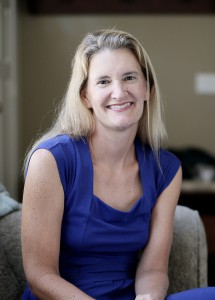Jean M. Twenge, SDSU – Millennial Religiosity
Jean M. Twenge, San Diego State psychologist, is delving into the religious practices of the age group she calls Generation Me.
Jean M. Twenge, Professor of psychology at San Diego State University, is the author of more than 100 scientific publications and the books Generation Me: Why Today’s Young Americans Are More Confident, Assertive, Entitled — and More Miserable Than Ever Before and The Narcissism Epidemic: Living in the Age of Entitlement (co-authored with W. Keith Campbell). Dr. Twenge frequently gives talks and seminars on teaching and working with today’s young generation based on a dataset of 11 million young people. Her audiences have included college faculty and staff, high school teachers, military personnel, camp directors, and corporate executives. Her research has been covered in Time, Newsweek, The New York Times, USA Today, U.S. News and World Report, and The Washington Post, and she has been featured on Today, Good Morning America, CBS This Morning, Fox and Friends, NBC Nightly News, Dateline NBC, and National Public Radio. She holds a BA and MA from the University of Chicago and a Ph.D. from the University of Michigan.
Millennial Religiosity

Are American young people less religious than they used to be, and why?
To find out, my co-authors and I located four large, nationally representative surveys of 11.2 million adolescents that asked the same questions on religion across several decades.
We found a seismic generational shift in religious commitment. Twice as many 12th graders and college students in the 2010s (vs. the 1970s and 1980s) said they never attend religious services, and twice as many said religion was “not important at all” in their lives. Twice as many 12th graders, and 3 times as many college students, chose “none” as their religious affiliation. And religion has not been replaced by spirituality: College students have become less likely to describe themselves as spiritual.
These analyses take a step beyond recent polls like those from the Pew Center, which only go back a few years. There, Millennials (whom I call Generation Me) might be less religious just because they are young. We instead found a true cultural change – Millennials are less religious than Boomers and GenX’ers were when they were teens. Millennials are the least religious generation in 6 decades, and possibly in American history.
Why did this happen? The broader context of cultural change is often missing in polls about religion. Individualism — a cultural system focusing more on the self and less on social rules — has increased in the U.S., and a more individualistic culture is often a less religious one. Religious orientation implies some commitment to a larger group or organization. Belonging to a religious group means following its beliefs and practices, which can be difficult in a cultural environment favoring personal choice and individual freedom. My prediction is that the U.S. will eventually resemble Northern Europe, where marriage is optional and religious participation is low.
Read More: WaPo WonkBlog: Why more young women than ever before are skipping church



